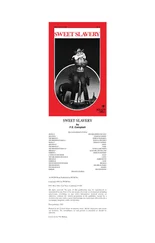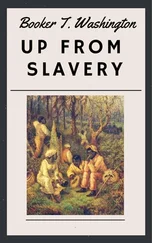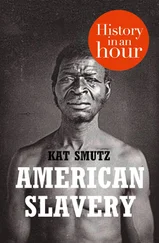Theodore Dwight Weld - American Slavery as It is - Testimonies
Здесь есть возможность читать онлайн «Theodore Dwight Weld - American Slavery as It is - Testimonies» — ознакомительный отрывок электронной книги совершенно бесплатно, а после прочтения отрывка купить полную версию. В некоторых случаях можно слушать аудио, скачать через торрент в формате fb2 и присутствует краткое содержание. Жанр: unrecognised, на английском языке. Описание произведения, (предисловие) а так же отзывы посетителей доступны на портале библиотеки ЛибКат.
- Название:American Slavery as It is: Testimonies
- Автор:
- Жанр:
- Год:неизвестен
- ISBN:нет данных
- Рейтинг книги:4 / 5. Голосов: 1
-
Избранное:Добавить в избранное
- Отзывы:
-
Ваша оценка:
- 80
- 1
- 2
- 3
- 4
- 5
American Slavery as It is: Testimonies: краткое содержание, описание и аннотация
Предлагаем к чтению аннотацию, описание, краткое содержание или предисловие (зависит от того, что написал сам автор книги «American Slavery as It is: Testimonies»). Если вы не нашли необходимую информацию о книге — напишите в комментариях, мы постараемся отыскать её.
"American Slavery As It Is" is a book composed of first-hand accounts of slavery and its horrors. The work focuses on the afflictions that slaves faced, covering their diet, clothing, housing, and working conditions. Harriet Beecher Stowe used «American Slavery As It Is» as the direct inspiration for her novel, Uncle Tom's Cabin.
American Slavery as It is: Testimonies — читать онлайн ознакомительный отрывок
Ниже представлен текст книги, разбитый по страницам. Система сохранения места последней прочитанной страницы, позволяет с удобством читать онлайн бесплатно книгу «American Slavery as It is: Testimonies», без необходимости каждый раз заново искать на чём Вы остановились. Поставьте закладку, и сможете в любой момент перейти на страницу, на которой закончили чтение.
Интервал:
Закладка:
Notwithstanding the preceding daily ration in the Buxton Prison is about double the usual daily allowance of our slaves, yet the visiting physicians decided, that for those prisoners who were required to work the tread-mill, it was entirely insufficient. This question was considered at length, and publicly discussed at the sessions of the Surry magistrates, with the benefit of medical advice; which resulted in "large additions" to the rations of those who worked on the tread-mill. See London Morning Chronicle, Jan. 13, 1830.
To the preceding we add the ration of the Roman slaves. The monthly allowance of food to slaves in Rome was called "Dimensum." The "Dimensum" was an allowance of wheat or of other grain, which consisted of five modii a month to each slave Ainsworth, in his Latin Dictionary estimates the modius, when used for the measurement of grain, at a peck and a half our measure, which would make the Roman slave's allowance two quarts of grain a day, just double the allowance provided for the slave by law in North Carolina, and six quarts more per week than the ordinary allowance of slaves in the slave states generally, as already established by the testimony of slaveholders themselves. But it must by no means be overlooked that this "dimensum," or monthly allowance, was far from being the sole allowance of food to Roman slaves. In addition to this, they had a stated daily allowance ( diarium ) besides a monthly allowance of money, amounting to about a cent a day.
Now without further trenching on the reader's time, we add, compare the preceding daily allowances of food to soldiers and sailors in this and other countries; to convicts in this and other countries; to bodies of emigrants rationed at public expense; and finally, with the fixed allowance given to Roman slaves, and we find the states of this Union, the slave states as well as the free, the United States' government, the different European governments, the old Roman empire, in fine, we may add, the world, ancient and modern, uniting in the testimony that to furnish men at hard labor from daylight till dark with but 1 7/8 lbs. of corn per day, their sole sustenance, is to MURDER THEM BY PIECE-MEAL. The reader will perceive by examining the preceding statistics that the average daily ration throughout this country and Europe exceeds the usual slave's allowance at least a pound a day; also that one-third of this ration for soldiers and convicts in the United States, and for soldiers and sailors in Europe, is meat, generally beef; whereas the allowance of the mass of our slaves is corn, only. Further, the convicts in our prisons are sheltered from the heat of the sun, and from the damps of the early morning and evening, from cold, rain, &c.; whereas, the great body of the slaves are exposed to all of these, in their season, from day-light till dark; besides this, they labor more hours in the day than convicts, as will be shown under another head, and are obliged to prepare and cook their own food after they have finished the labor of the day, while the convicts have theirs prepared for them. These, with other circumstances, necessarily make larger and longer draughts upon the strength of the slave, produce consequently greater exhaustion, and demand a larger amount of food to restore and sustain the laborer than is required by the convict in his briefer, less exposed, and less exhausting toils.
That the slaveholders themselves regard the usual allowance of food to slaves as insufficient, both in kind and quantity, for hard-working men, is shown by the fact, that in all the slave states, we believe without exception, white convicts at hard labor, have a much larger allowance of food than the usual one of slaves; and generally more than one third of this daily allowance is meat. This conviction of slaveholders shows itself in various forms. When persons wish to hire slaves to labor on public works, in addition to the inducement of high wages held out to masters to hire out their slaves, the contractors pledge themselves that a certain amount of food shall be given the slaves, taking care to specify a larger amount than the usual allowance, and a part of it meat.
The following advertisement is an illustration. We copy it from the "Daily Georgian," Savannah, Dec. 14, 1838.
NEGROES WANTED.
The Contractors upon the Brunswick and Alatamaha Canal are desirous to hire a number of prime Negro Men, from the 1st October next, for fifteen months, until the 1st January, 1840. They will pay at the rate of eighteen dollars per month for each prime hand.
These negroes will be employed in the excavation of the Canal. They will be provided with three and a half pounds of pork or bacon, and ten quarts of gourd seed corn per week, lodged in comfortable shantees, and attended constantly by a skilful physician.
J. H. COUPER,
P. M. NIGHTINGALE.
But we have direct testimony to this point. The late Hon. John Taylor, of Caroline Co. Virginia, for a long time Senator in Congress, and for many years president of the Agricultural Society of the State, says in his "Agricultural Essays," No. 30, page 97, "BREAD ALONE OUGHT NEVER TO BE CONSIDERED A SUFFICIENT DIET FOR SLAVES EXCEPT AS A PUNISHMENT." He urges upon the planters of Virginia to give their slaves, in addition to bread, "salt meat and vegetables," and adds, "we shall be ASTONISHED to discover upon trial, that this great comfort to them is a profit to the master."
The Managers of the American Prison Discipline Society, in their third Report, page 58, say, "In the Penitentiaries generally, in the United States, the animal food is equal to one pound of meat per day for each convict."
Most of the actual suffering from hunger on the part of the slaves, is in the sugar and cotton-growing region, where the crops are exported and the corn generally purchased from the upper country. Where this is the case there cannot but be suffering. The contingencies of bad crops, difficult transportation, high prices, &c. &c., naturally occasion short and often precarious allowances. The following extract from a New Orleans paper of April 26, 1837, affords an illustration. The writer in describing the effects of the money pressure in Mississippi, says:
"They, (the planters,) are now left without provisions and the means of living and using their industry, for the present year. In this dilemma, planters whose crops have been from 100 to 700 bales, find themselves forced to sacrifice many of their slaves in order to get the common necessaries of life for the support of themselves and the rest of their negroes. In many places, heavy planters compel their slaves to fish for the means of subsistence, rather than sell them at such ruinous rates. There are at this moment THOUSANDS OF SLAVES in Mississippi, that KNOW NOT WHERE THE NEXT MORSEL IS TO COME FROM. The master must be ruined to save the wretches from being STARVED"
II. Labor
Table of Contents
THE SLAVES ARE OVERWORKED.
This is abundantly proved by the number of hours that the slaves are obliged to be in the field. But before furnishing testimony as to their hours of labor and rest, we will present the express declarations of slaveholders and others, that the slaves are severely driven in the field.
| WITNESSES. | TESTIMONY. |
| The Senate and House of Representatives of the State of South Carolina. | "MANY OWNERS of slaves, and others who have the management of slaves, do confine them so closely at hard labor that they have not sufficient time for natural rest. --See 2 Brevard's Digest of the Laws of South Carolina, 243." |
| History of Carolina.--Vol. i, page 120. | "So laborious is the task of raising, beating, and cleaning rice, that had it been possible to obtain European servants in sufficient numbers, thousands and tens of thousands MUST HAVE PERISHED." |
| Hon. Alexander Smyth, a slaveholder, and member of Congress from Virginia, in his speech on the "Missouri question," Jan. 28, 1820. | "Is it not obvious that the way to render their situation more comfortable, is to allow them to be taken where there is not the same motive to force the slave to INCESSANT TOIL that there is in the country where cotton, sugar, and tobacco are raised for exportation. It is proposed to hem in the blacks where they are HARD WORKED, that they may be rendered unproductive and the race be prevented from increasing. * * * The proposed measure would be EXTREME CRUELTY to the blacks. * * * You would * * * doom them to HARD LABOR." |
| "Travels in Louisiana," translated from the French by John Davies, Esq.--Page 81. | "At the rolling of sugars, an interval of from two to three months, they work both night and day. Abridged of their sleep, they scarce retire to rest during the whole period. " |
| The Western Review, No. 2,--article "Agriculture of Louisiana." | "The work is admitted to be severe for the hands, (slaves,) requiring when the process is commenced to be pushed night and day. " |
| W. C. Gildersleeve, Esq., a native of Georgia, elder of the Presbyterian church, Wilkesbarre, Penn. | " Overworked I know they (the slaves) are." |
| Mr. Asa A. Stone, a theological student, near Natchez, Miss., in 1834 and 1835. | "Every body here knows overdriving to be one of the most common occurrences, the planters do not deny it, except, perhaps, to northerners." |
| Philemon Bliss, Esq., a lawyer of Elyria, Ohio, who lived in Florida in 1834 and 1835. | "During the cotton-picking season they usually labor in the field during the whole of the daylight, and then spend a good part of the night in ginning and baling. The labor required is very frequently excessive, and speedily impairs the constitution." |
| Hon. R. J. Turnbull of South Carolina, a slaveholder, speaking of the harvesting of cotton, says: | ' All the pregnant women even, on the plantation, and weak and sickly negroes incapable of other labor, are then in requisition. " |
HOURS OF LABOR AND REST.
Интервал:
Закладка:
Похожие книги на «American Slavery as It is: Testimonies»
Представляем Вашему вниманию похожие книги на «American Slavery as It is: Testimonies» списком для выбора. Мы отобрали схожую по названию и смыслу литературу в надежде предоставить читателям больше вариантов отыскать новые, интересные, ещё непрочитанные произведения.
Обсуждение, отзывы о книге «American Slavery as It is: Testimonies» и просто собственные мнения читателей. Оставьте ваши комментарии, напишите, что Вы думаете о произведении, его смысле или главных героях. Укажите что конкретно понравилось, а что нет, и почему Вы так считаете.












